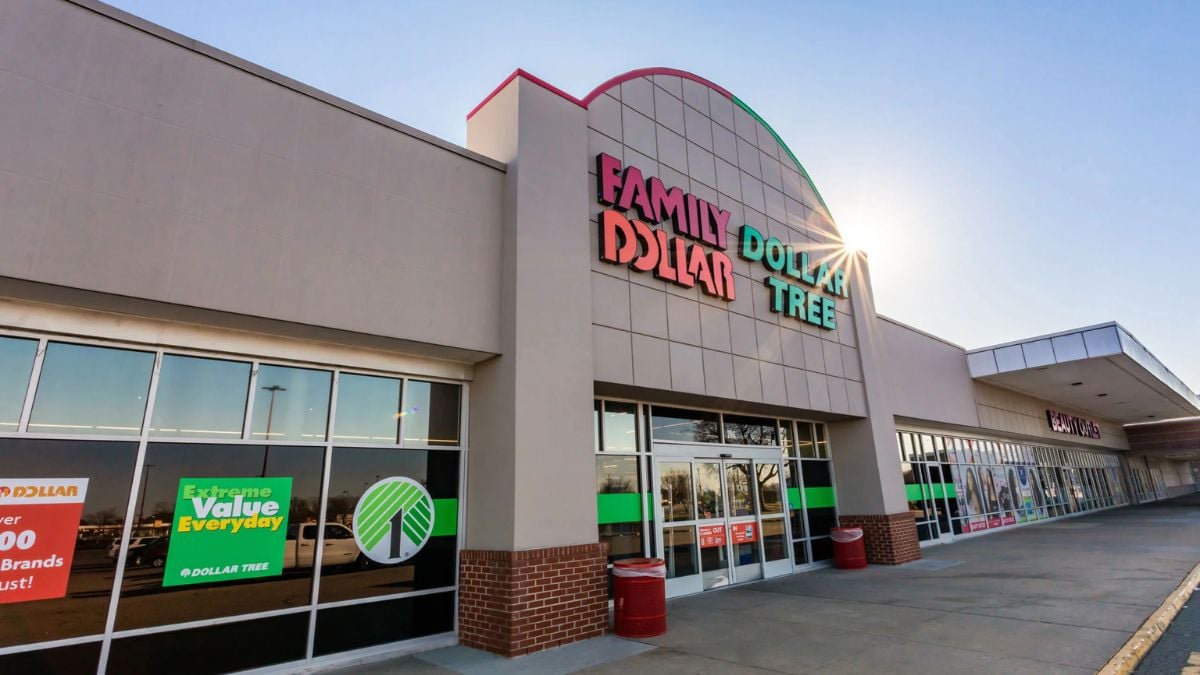
Dollar Tree announced the sale of Family Dollar for over one billion pesos to Brigade Capital Management, LP, and Macellum Capital Management, LLC, which partnered to acquire this business segment of the company.
Following this sale, uncertainty arises about what will happen with the stores. If you are a customer of the brand, here’s everything we know about it.
What will happen to the stores after the sale of Family Dollar?
In a statement, the company stated that the headquarters will remain in Chesapeake, Virginia. It also mentioned that the sale will help achieve the brand’s maximum potential, so Family Dollar is expected to be well-positioned to grow as a private company and strengthen its commitment to providing essential and affordable products to its customers, enabling them to do more with less.
“We will continue to expand and optimize our Dollar Tree business to maximize value for our associates, customers, and shareholders, with a strengthened focus on attractive initiatives, such as expanding our assortment, major new store openings planned in the United States, and transactions that drive our growth strategy,” said Mike Creedon, CEO of Dollar Tree, Inc.
ALSO READ Tim Hortons launches new spring menu! This includes
How much was Family Dollar sold for?
According to the statement, the purchase price is $1,007.0 million, subject to customary closing adjustments.
Why did Dollar Tree sell Family Dollar?
After a thorough review of the possible alternatives for the business segment, the leadership team and the Dollar Tree board of directors determined that the sale of Family Dollar to Brigade and Macellum best unlocks value for Dollar Tree shareholders and positions the segment for future success.
“Since 1959, Family Dollar has served its customers by offering practical, high-quality products at an excellent price, and it is a cornerstone in communities across the United States. We look forward to continuing and strengthening Family Dollar as an independent company, which we believe will drive further success for the company and create value for all shareholders, including employees, customers, and communities,” said Matt Perkal, partner at Brigade.
The transaction is expected to close later in the second quarter of 2025. During this process, JP Morgan Securities LLC is acting as the financial advisor, and Davis Polk & Wardwell LLP is serving as legal advisor to Dollar Tree.
Additionally, Jefferies LLC is acting as the lead financial advisor to Brigade and Macellum, and RBC Capital Markets is also acting as a financial advisor in the acquisition of Family Dollar. Paul, Weiss, Rifkind, Wharton & Garrison LLP is serving as legal advisor for the transaction. Wells Fargo, RBC Capital Markets, and WhiteHawk Capital Partners are financing the transaction.
History of Family Dollar
Leon Levine, a young entrepreneur of 21 with the vision of offering high-quality products at a great price for under $2, opened the first Family Dollar store in Charlotte, North Carolina, in 1959. He designed a strategic layout that made it easier for customers to quickly find their favorite products in any store, which allowed managers to focus on providing exceptional customer service.
The company’s expansion in the southern United States began to grow rapidly during the 1960s. By the end of the decade, the chain operated 27 stores in four states, with annual sales exceeding $5 million.
In 1970, the company went public, offering shares at $14.50 each. The following year, the company opened its 100th store. In the next three years, its expansion grew significantly, reaching 200 stores and opening its first distribution center in Matthews, North Carolina. On July 6, 2015, Dollar Tree acquired Family Dollar. After the acquisition, both companies celebrated the opening of their 15,000th store together.









